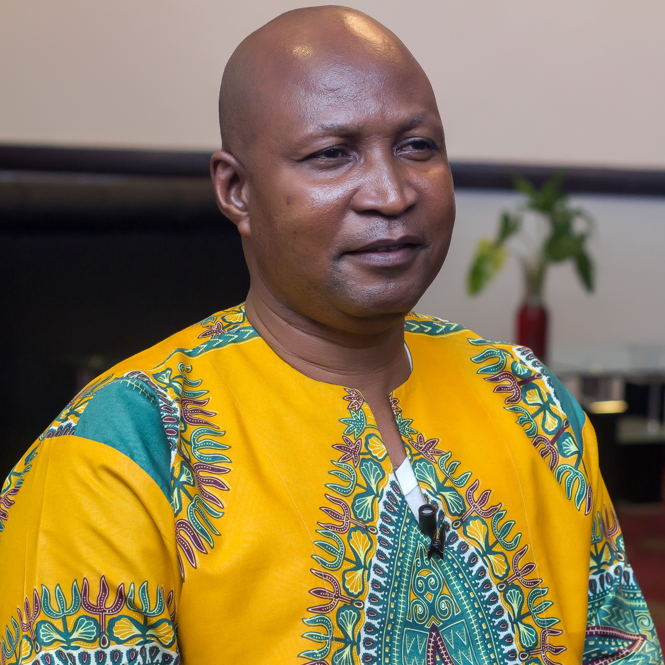
They call me the family planning pastor because of my passion for anything that has to do with family planning and they see me as a leading voice championing the cause of family planning in Oyo State.
– Pastor David Adeleke
Pastor David Adeleke was at a crossroads. In his rural community in Nigeria’s Oyo State, a woman and her unborn child had died during delivery because there was no nearby health center. To make matters worse, the woman had another baby who was just a year old, her second child coming too soon after her first.
But family planning had long been viewed as “a license for promiscuity,” he says. As a Christian clergyman, he knew that while some parts of the Bible spoke of being fruitful and multiplying, religion and family planning could find common ground.
So the timing was perfect when, in 2014, representatives from CCP’s Nigerian Urban Reproductive Health Initiative (NURHI) came to see Adeleke. They would give him the skills to understand how to reconcile family planning and religion, use data to make the case, provide information on modern contraception and empower women to “choose the number of children they would have.”
“I see family planning as insurance of the complete family’s wellbeing, especially mothers who go through the risk of pregnancy for nine months or more, and the risky rigor of labor,” Adeleke says.
He was also trained alongside other Christian and Muslim faith leaders to give sermons on family planning and he has traveled to churches and mosques around Oyo to talk about family planning. He ended up writing a self-published book on reproductive health from a Christian perspective (printing 40,000 copies which he distributes for free!)
“They call me the family planning pastor because of my passion for anything that has to do with family planning and they see me as a leading voice championing the cause of family planning in Oyo State,” he says.
“I want to say thanks for NURHI because [maternal mortality] has been reduced drastically. It is my opinion that family planning has come to stay forever. I believe that we will have no problem because on a daily basis we are creating transformational leaders for sustainable family planning messaging within our communities.”
Receive the latest news and updates, tools, events and job postings in your inbox every month